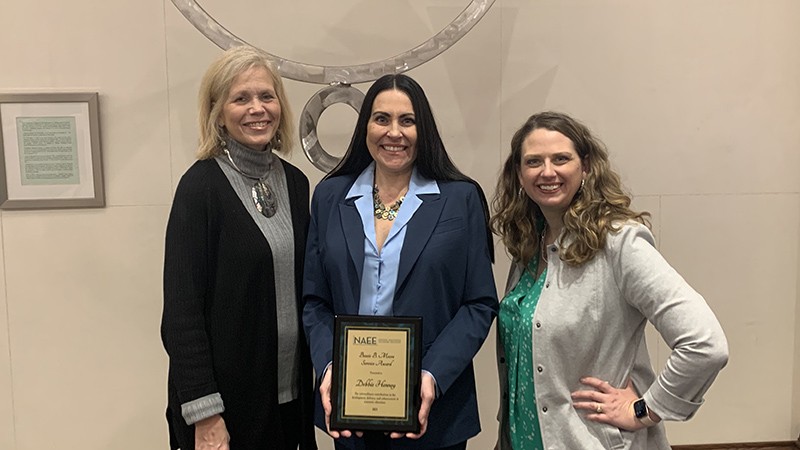The MCC Center for Economic Education is part of a nationwide network of university and community college-based centers which provide teacher training and curriculum development for America's K-12 schools. The Center at MCC is the sixth in the United States to be housed at a Community College.
"The Center at MCC will help strengthen economic understanding and financial literacy throughout Arizona and by partnering with economic educators across the country we will empower teachers, students and community members to better understand the world through the economic way of thinking," stated Greg Pratt, former MCC Economics Faculty and founding Director for the MCC Center for Economic Education.

MCC's Center for Economic Education will improve economic literacy of current and future citizens of the state by providing educational and training programs andInsert images here, one after another materials for teachers of K-12 classes. The Center conducts workshops, seminars, for-credit classes and other professional development opportunities for educators. In addition, the Center acts as a clearinghouse for the gathering and dissemination of economics based curriculum, lesson plans, activities and other resources that K-12 educators can easily implement into literature, math and science lessons already being taught. The Center also hosts the annual state-wide Economics Challenge, Finance Challenge, Economics Critical Thinking Competition, Personal Finance Case Study Competition.
Elena Zee, Arizona Council on Economic Education President, commented, "The Center for Economic Education at MCC provides quality training for teachers in the Phoenix-metro area that are tasked with teaching Arizona's K-12 Economics Standards and the economics course required for high school graduation. This center serves as a model that can be replicated to take advantage of the vast community college network in Arizona to reach educators across the state that have been historically underserved."
Programs
Courses for Pre-Service Teachers
ECN 211 Principles of Macroeconomics
ECN 212 Principles of Microeconomics
High School Boot Camp
1-week summer program for new and newer teachers of economics
AEPA Prep Sessions
Study sessions and tutoring for teachers preparing to take the Arizona Educator Profiency Exam in Economics
Student Competitions
Economics Challenge
Personal Finance Challenge
Critical Thinking Case Study Competition
Personal Finance Case Study Competition
In-Service Programs
Training for schools/districts
Conferences
Arizona Council for the Social Studies Conference
Arizona Society of Economics Teachers Conference
Sample Workshops
Financial Literacy Workshop
Making Sense of the Federal Budget, Debt and Deficit - Workshop
Water Conservation Workshop at the Phoenix Zoo
The Standup Economist
The Economics of Dating - in Partnership with the MCCCD Honors Program
Pre-Service Teacher Workshops - In Partnership with ASU
GeoNomics Workshops - In Partnership with the Arizona Geographical Alliance
Jacob Clifford Workshop
Virtual Economics
Stock Market Game Workshop
Art and Economics Workshops - In Partnership with the i.d.e.a. Museum in Mesa
Ethics, Economics and Social Issues
Resources
Partner Organizations
- Arizona Council on Economic Education
https://www.azecon.org - National Association of Economic Educators
https://naee.net/
- Arizona Council for the Social Studies
http://www.azsocialstudies.org/ - National Council on Economic Education
http://www.councilforeconed.org/ - American Economic Association Committee on Economic Education
http://www.aeaweb.org/committees/AEACEE/index.php
Upcoming Events
- Economics and Personal Finance Challenge: https://azecon.org/student-program/economics-challenge/
Center Director
Debbie Henney
Residential Faculty - Economics
Social Science and Justice Studies
Office: SC 14 - Room: 62
480-461-7067
Economics and Personal Finance Challenge Winners 2024
Milton Friedman Division
First Place
Team: Mountain Sky 1
School: Mountain Sky Middle School
Teacher: Lori Glover
Second Place
Team: Mountain Sky 3
School: Mountain Sky Middle School
Teacher: Lori Glover
David Ricardo Division
First Place
Team: RedTeam
School: BASIS Chandler
Teacher: Richard Aitken
Second Place
Team: D1 Yappers
School: Hamilton High School
Teacher: Grant Lapinski
Adam Smith Division
First Place
Team: The Thorgregsons
School: BASIS Mesa
Teacher: Greg Thorson
Second Place
Team: Orange Team
School: BASIS Chandler
Teacher: Richard Aitken





